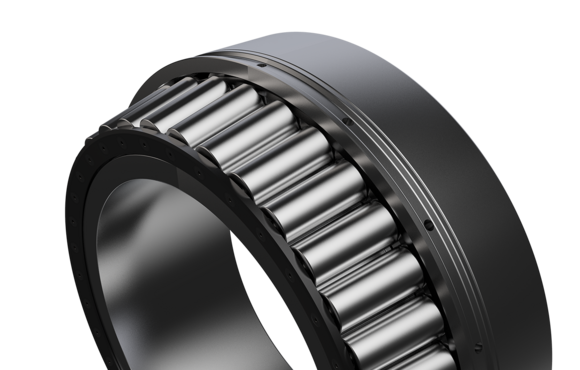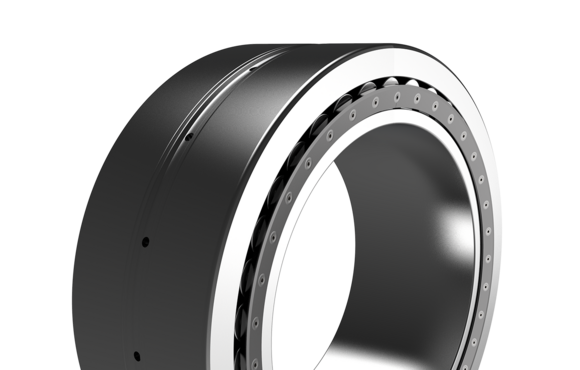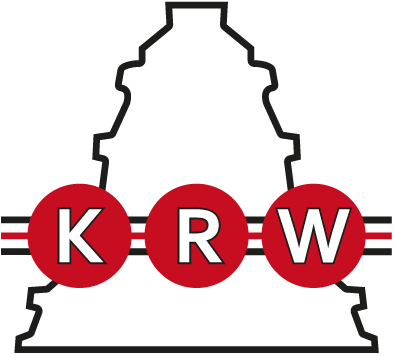
Increase bearing performance using pin-type cages
28.04.2019
In heavy machinery, rolling bearings are often subject to high loads. Strong vibrations, hammering strain and high loads can adversely affect the reliability of the rolling bearing.
In this case, an increase in the dynamic load rating, which in turn can be achieved by increasing the number of rolling elements, can contribute to a longer service life. In addition to full complement roller bearings, which are often used at this point, roller bearings with pin-type cage have up to 10% higher load capacity compared to a standard cage and even guarantee high speeds.

Rolling bearings with a pin-type cage, usually cylindrical roller bearings, tapered roller bearings and more rarely spherical roller bearings, use rolling elements with a central axial bore. Through this hole leads a steel pin, which connects two side cage discs together and thus ensures high strength. These interchangeable roller sets facilitate the assembly and disassembly of the bearing considerably.

The single rolling elements of a pin-type cage are exposed to a particularly high load, as they deform continuously due to the cyclically rotating stress. To optimize the flexural fatigue strength of the rolling elements, they are subjected to the case hardening process. Within the rolling element, different degrees of hardness are generated. In contrast to the particularly hard, resistant outer layer, the softer core absorbs the energy and converts it into an elastic deformation.
The lubricant requirement of a rolling bearing with a pin-type cage is higher than with a standard cage. In addition to the contact areas between the outer ring and the rolling element and inner ring and rolling elements, the contact area between the individual rolling element and the continuous pin must additionally be sufficiently lubricated. In most cases, an oil bath lubrication is used.
The costs for pin-type cages are significantly higher than for a standard cage due to the case hardened rolling elements and the increased cage assembly costs. However, the resulting savings in maintenance, downtime and replacement bearing costs of large plants are usually at a multiple of the higher bearing price.
Our application engineering team is at your side for comprehensive technical advice.
